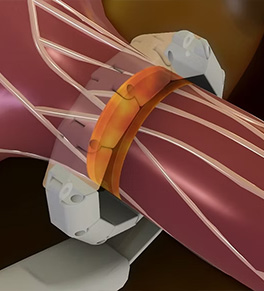Yes, the most popular erectile dysfunction (ED) medications (Viagra®, Cialis®, Levitra® and Stendra®) are generally considered safe for use by most men. They are non-addictive and are not associated with overdose abuse. But as with any medication, there can be side effects, such as:
- Flushing (warmth, redness or tingly feeling)
- Headache or dizziness
- Abnormal vision (blurred vision or changes in color vision)
- Stuffy nose
- Muscle pain
- Back pain
- Upset stomach
Also, ED medications should not be used by anyone who is taking cardiac drugs known as nitrates, because they can result in an unsafe loss of blood pressure. You should consult with your physician prior to taking ED medications for proper cardiac assessment.
A well-publicized 2014 study by Harvard Medical School researchers showed a correlation in older men between Viagra use and melanoma, the deadliest form of skin cancer.
To be clear, the study did not say that Viagra caused the skin cancer. It just reported that older men who said they used Viagra were diagnosed more often with melanoma than those who didn’t take the drug.
Further studies from Sweden and the United Kingdom refuted these findings and suggested that increased sun exposure in men taking ED medications was the cause of higher rates of skin cancer in this population.
The overall success rate of ED drugs is about 70 percent. There is not much difference between the leading brands:
- Viagra and Levitra start working in 30 minutes and last for four to five hours.
- Cialis lasts for 36 hours and a smaller dose can also be taken daily to manage both ED and urinary symptoms due to prostate enlargement.
- Stendra starts working in as little as 15 minutes and lasts up to 12 hours.
High-fat meals may decrease the efficacy of Viagra and Levitra but not Cialis and Stendra.
Do not despair; multiple solutions exist for this common problem. First, your physician will assess whether you are taking your medications appropriately and provide you with additional instructions if needed.
If this is not the issue, a specialized urologist should conduct an advanced assessment. This includes a sexual questionnaire, a comprehensive penile vascular study (ultrasound of the penis to assess for anatomic abnormalities as well as penile blood flow patterns) and measurement of blood hormone levels.
Depending on your physician’s findings, treatment options can include:
- Psychological counseling
- Testosterone replacement therapy
- Intracavernosal injection therapy (injection of erectogenic medications into the side of the penis)
- Alprostadil intraurethral (MUSE) suppository
- A vacuum erection device (a penis pump that pulls blood into your penis)
- Surgery to implant a penile prosthesis
Featured Blog Posts

How to get the most out of your doctor’s appointments

Genitourinary syndrome of menopause: It’s common and treatable

First U.S. test of nerve-blocking device for resistant hypertension
Procedure zaps renal artery nerves linked to hypertension without damaging the blood vessel.




